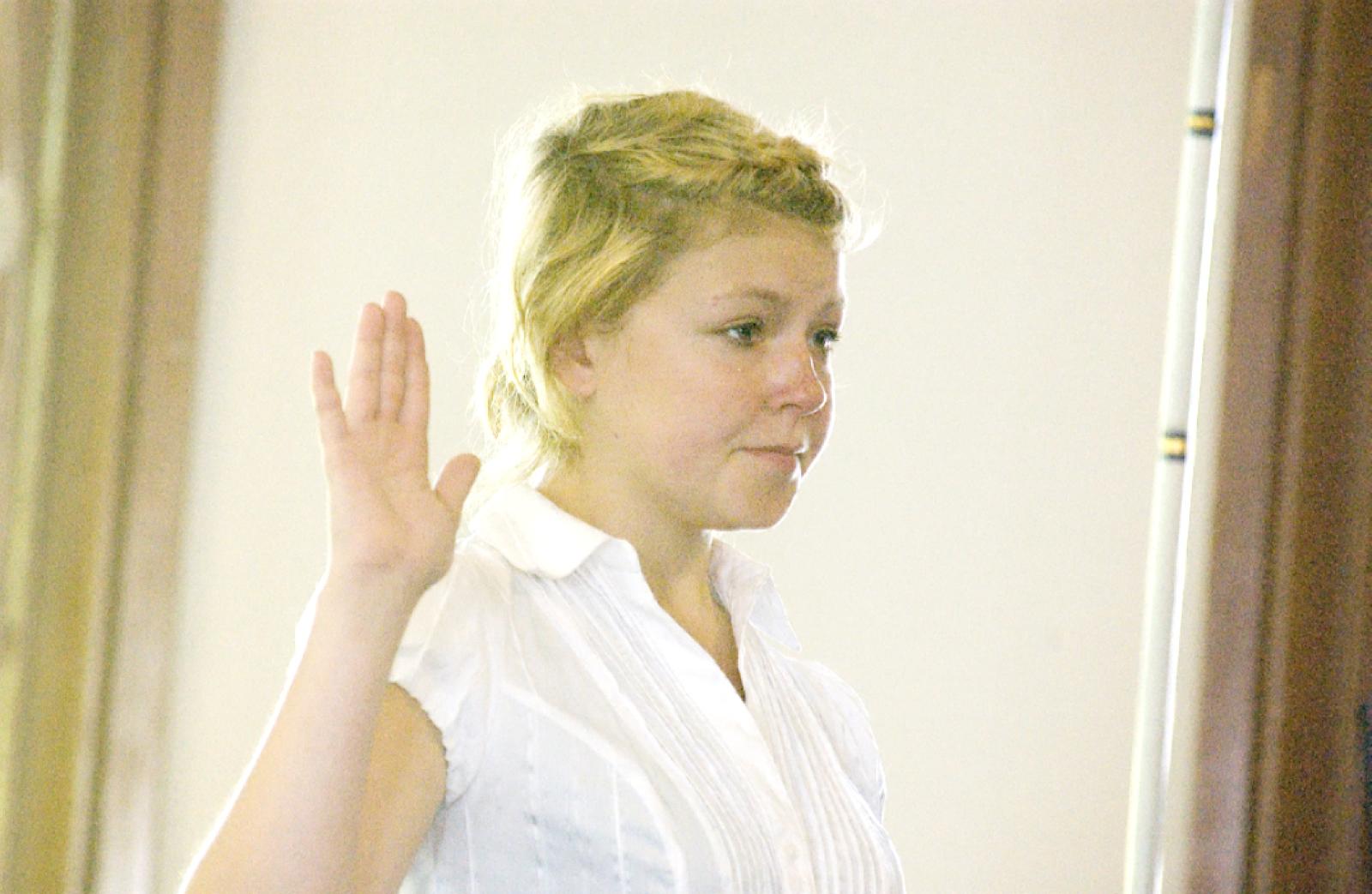Acting well out of the public eye, Dukes County sheriff Michael McCormack quietly agreed last month to allow Kelly McCarron, the young woman who was drunk and driving the car the night 18-year-old Jena Pothier was killed in June 2009, to leave a Barnstable correctional facility for women less than seven months into a one-year term. Ms. McCarron has returned to the Vineyard to serve out the remainder of her sentence at home under electronic surveillance.
“It wasn’t an easy decision — certainly it was something I gave a lot of thought to,” Sheriff McCormack said yesterday.
Ms. McCarron was sentenced to serve a year in state prison last May by a district court judge after she pleaded guilty to motor vehicle homicide while operating under the influence of alcohol. Her blood alcohol level was three times the legal limit the night of the accident. The sentencing was part of a plea bargain with the Cape and Islands district attorney.
The accident, which shook the Vineyard community, where both girls and their families are well known, took place three days before Ms. McCarron, who was 17, was due to graduate from the Martha’s Vineyard Regional High School. Ms. Pothier had just completed her freshman year at Plymouth State University in New Hampshire. The two girls were friends.
Sheriff McCormack said yesterday that he agreed to allow Ms. McCarron to return home on Dec. 22 to complete her one year of incarceration. He said she is wearing an electronic monitoring device and confined to her mother’s home in Oak Bluffs. She is allowed to leave the house to attend weekday rehabilitation programs at the county corrections center and to attend self-help meetings for people with drug and alcohol problems. She is subject to random testing for drugs and alcohol. The sheriff confirmed that Ms. McCarron is allowed to use a computer, a privilege she did not have while in prison in Barnstable.
“Kelly McCarron is grateful to be home,” Ms. McCarron wrote on her Facebook page on Dec. 28.
The Facebook posting was how Jena Pothier’s parents first learned that Ms. McCarron had been allowed to return home.
David and Terry Pothier said yesterday that the decision by the sheriff was made over their clear objections and has left them deeply saddened and disillusioned with the justice system.
“Does justice ever prevail? I don’t think I’ve seen that,” said Mrs. Pothier.
“It’s a kick in the face; the judicial system has let us down,” said Mr. Pothier.
The Pothiers, who participated in Ms. McCarron’s sentencing and plea bargain last year as victims, said they were approached by the sheriff in November, who told them that he had been contacted by Ms. McCarron’s attorney and family requesting that she be allowed to return home to serve out the remainder of her sentence. “We said we objected to that — let her serve out the remaining time in Barnstable,” Mrs. Pothier recalled. She continued: “The next day the sheriff called us and said he would respect our wishes. He said after talking to us he realized that she needs to stay there, and that he could not allow her to return if we objected.”
The Pothiers said they believed the matter had ended. In December they left the Island for the Christmas holiday. While they were away they saw the posting on Ms. McCarron’s Facebook page and realized the situation had changed. When they returned home in early January they found a certified letter waiting in their mailbox from the sheriff informing them that Ms. McCarron would be allowed to return to the Island.
The letter was dated Dec. 21. “He never contacted us,” said Mrs. Pothier, who credited Chris Daly, victims service coordinator for the state parole board, and Jeff Ryan, who works in a victims service for Barnstable county, for their support and assistance.
Mr. McCormack confirmed that he had met with the Pothiers to test the idea in November, and that initially he had decided against allowing Ms. McCarron to come home. But the sheriff said that at that time he was under the impression that a document had been signed as part of the plea agreement prohibiting electronic monitoring. When he learned that was not the case, he changed his decision. And he admitted that there was pressure.
“I received persistent calls from the family and the attorney representing Ms. McCarron,” Mr. McCormack said. “When I found out that the electronic monitoring program was not prohibited, I decided that I could follow my philosophy of bringing people back into the community on a gradual basis . . . I had information that she wasn’t doing well in Barnstable. She wasn’t eating; she was losing weight and was despondent. I think the right thing to do was to bring her back and put her in an environment where she could get some counseling and receive good food and care.” He continued:
“I knew how the Pothiers felt — they were never anything but clear on that, and I know this has disappointed them. It was a difficult decision. It came down to whom do you help. I couldn’t help the Pothier girl — I wish I could — the only one left I really could help would be the McCarron girl.
“So that’s how I made the decision.”




Comments (1)
Comments
Comment policy »